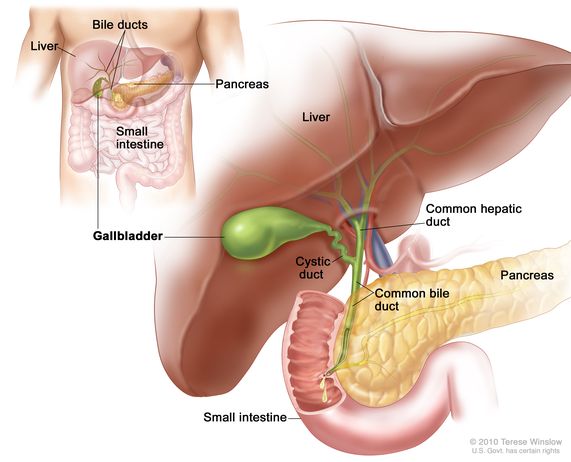biliary bypass
(BIH-lee-AYR-ee BY-pas)
Surgery done to help relieve symptoms caused by a blocked bile duct. During a biliary bypass, the gallbladder or a part of the bile duct before the blockage is connected to either a part of the bile duct that is past the blockage or to the small intestine. This allows bile (fluid made by the liver) to flow around the blockage to the gallbladder or small intestine. A blocked bile duct may be caused by cancer or other conditions, such as gallstones, infection, or scar tissue. A biliary bypass is usually done in patients who have bile duct tumors that cannot be completely removed by surgery.
